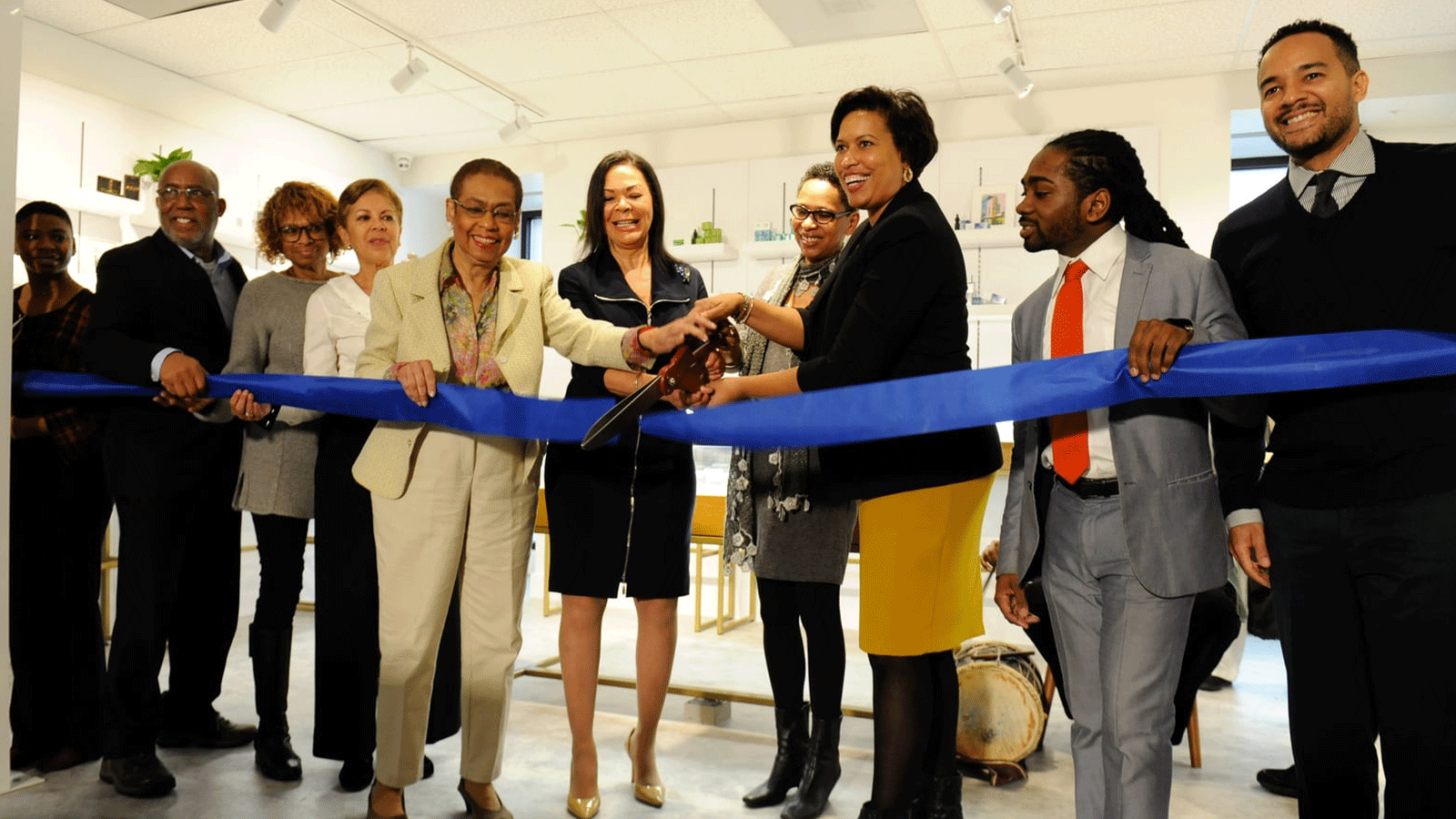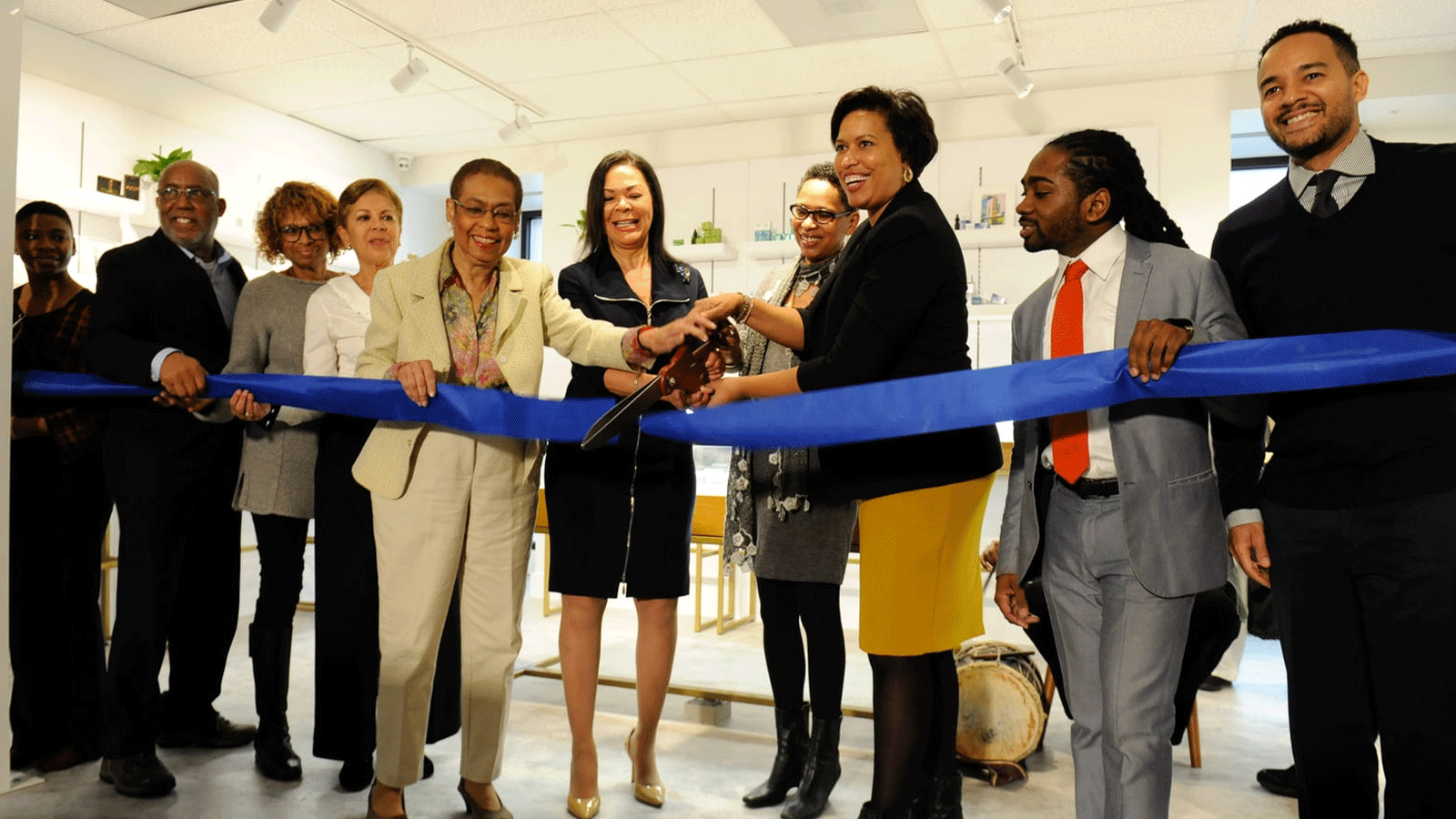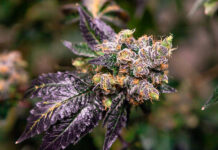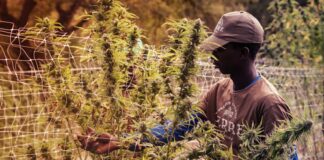
Linda Mercado Greene turned the abstract ideal of social and gender equity into political action when she used collaboration, business savvy, and a passion for social justice to open Anacostia Organics, her pioneering marijuana dispensary in the United States capital.
When Anacostia Organics held its grand opening on Jan. 24, 2019, the event made national headlines. Washington, D.C. Mayor Muriel Bowser, the district’s Delegate to the House of Representatives, Eleanor Holmes Norton, and other city officials helped inaugurate one of the few 100 percent minority-female-owned medical marijuana dispensaries in the U.S.
Such fanfare for a dispensary opening is not common, but in certain cases it warrants the attention, especially when it happens in the heart of the nation’s capital. As women around the world observe International Women’s Day on March 8, 2019, women like Greene are raising awareness against gender bias and showing how to find gender parity, especially in the male-dominated cannabis industry.
Greene, owner of Anacostia Organics and longtime political insider, opened the dispensary in her neighborhood, Ward 8, the southeastern section separated from the rest of the city by the Anacostia River where an overwhelming number of medical marijuana cardholders reside, yet the closest dispensary is miles away.
The interior of Anacostia Organics in Washington, D.C., resembles an art gallery. (Photo by Victor Holt)
“Elderly folks, military veterans, families with epileptic or autistic children had to catch the bus or pay for a taxi to cross the river to get their medicines,” said Greene, owner of BCG Holdings, the parent company for Anacostia Organics. It would be the sixth dispensary in the city out of seven in total.
During the process of seeking a dispensary license, Greene learned that no longtime female Washington, D.C., residents had been awarded a cultivator or a dispensary license.
Only two people of color and only two women had secured licenses out of the 15 granted to operate in Washington, D.C., where just less than half of the district’s 713,000 residents are black. The dispensaries that were awarded licenses by the District of Columbia Department of Health opened in more affluent neighborhoods.
“Oh no, this is not right,” said Greene, who served as chief of staff to the late Marion Barry from 2005 to mid-2006 when he represented Ward 8 in the D.C. Council. The influential Barry, a four-term mayor of Washington, D.C. and three-term council member, died in 2014.
No stranger to local and national politics, Greene acted fast.
“I contacted my colleagues and said, ‘Let me show you how to correct this situation,’ ” said Greene, who is on the executive leadership team of the Cannabis Trade Federation. “Having gained experience from years of contact with Marion Barry, I knew how to navigate in the government. I took my case to Mayor Bowser and the D.C. Council members and pointed out that Washington’s minorities and women were being left out and that was not acceptable.”
By June 2017, emergency legislation was approved to reopen the licensing process, in which the city gave additional points to district companies that were designated a Certified Business Enterprise by a program that gives preference to qualified companies as they aim to secure government contracting work.
“Our bid was accepted and we opened a dispensary in Ward 8 of the nation’s capital … on Martin Luther King, Jr. Avenue,” said Greene, who explained that Anacostia Organics is named after the neighborhood that lies along the Anacostia River where Frederick Douglass lived most of his adult life. The Anacostia area is among the poorest in Washington, D.C.
Another dispensary, awarded a license in January 2019, will be opening later in the year in Ward 7, which is also a low-income, high-unemployment neighborhood. The District of Columbia is divided into eight council wards.
Throughout the United States, according to a 2017 survey done by Marijuana Business Daily, approximately 81 percent of cannabis business owners or founders are white, while only 4 percent are African American.
“One of our primary objectives is to see social and economic equity in the cannabis industry enshrined in law and adapted to every state,” said Greene, who serves on the board of directors of the Minority Cannabis Business Association and currently holds the chair of the D.C. Medical Cannabis Trade Association.
One of our primary objectives is to see social and economic equity in the cannabis industry enshrined in law and adapted to every state. Click To Tweet
Greene is already involving the Anacostia community in her dispensary.
“New dispensaries often hire experienced people from other states, but our staff of eight full-time people are D.C. residents, and the majority live in Wards 7 and 8,” said Greene, who lives two blocks from the dispensary. “People here already knew a lot about cannabis. Now, they’ve got a chance to excel in a business setting, as it should be. We want to recycle the jobs and money right here in the neighborhood.”
Paintings by local artist Tendani Mpulubusi El, who goes by Tendani and photographs by Marvin Bowser, the mayor’s brother, are displayed on the walls of the large one-story dispensary that could easily be mistaken for an art gallery were it not for the glass cases full of medical marijuana.
The interior of Anacostia Organics dispensary in Washington, D.C., features artwork, including the company’s artful logo, AO, created by Ward 8 artist Tendani Mpulubusi El, who is known as Tendani. (Photo by Victor Holt)
“Apart from lifting the stigma of marijuana, having a dispensary here in our community serves to help people learn more about the holistic healing properties of cannabis,” said Lindsay Wood, a patient care specialist at Anacostia Organics who previously worked as a nurse’s assistant.
Greene’s two trailblazing co-founders of Anacostia Organics are Sherri Blount, an intellectual-property attorney in Washington, D.C., and a former PBS executive; and Yolanda Caraway, president and CEO of The Caraway Group, a minority woman-owned communications and public affairs consulting firm. A third board member and chief financial officer is businessman H. Marrel Foushee.
Caraway is currently on tour promoting her book, “For Colored Girls Who Have Considered Politics,” a four-decade, behind-the-scenes look at national and local politics through the eyes of four influential African-American women. Caraway wrote the book with Donna Brazile, the veteran Democratic political strategist; Leah Daughtry, CEO of the 2016 and 2008 Democratic National Convention Committees, and Minyon Moore, political strategist and founder of Women Building for the Future.
Any advice on International Women’s Day?
“Yes, transfer whatever skills and talents you possess into the cannabis industry now! Women need to take their seats at the table before it’s too late because this is going to be a multi-billion dollar industry and we need to be part of it,” Greene said. “You don’t have to touch the plant. In fact, don’t get involved in that area; it’s complicated and brutally taxed. There are endless jobs of all skill levels women are already doing that can be transferred to this industry. Get connected, read everything you can and break the mold, crack the ceiling.”
The interior of Anacostia Organics, a minority-female-owned dispensary in Ward 8 of Washington, D.C. (Photo by Victor Holt)
Featured Image: The ribbon-cutting ceremony for Anacostia Organics drew Washington, D.C., dignitaries. Left to right: Patient Care Specialist Lindsay Wood, treasurer and Chief Financial Officer H. Marrel Foushee; co-founders Yolanda Caraway and Sherri Blount; House of Representatives Delegate Eleanor Holmes Norton, co-owner Linda Mercado Greene and her daughter Tamia Harper, district Mayor Muriel Bowser, Councilman Trayon White, and Deputy Mayor for Planning and Economic Development Brian Kenner.















